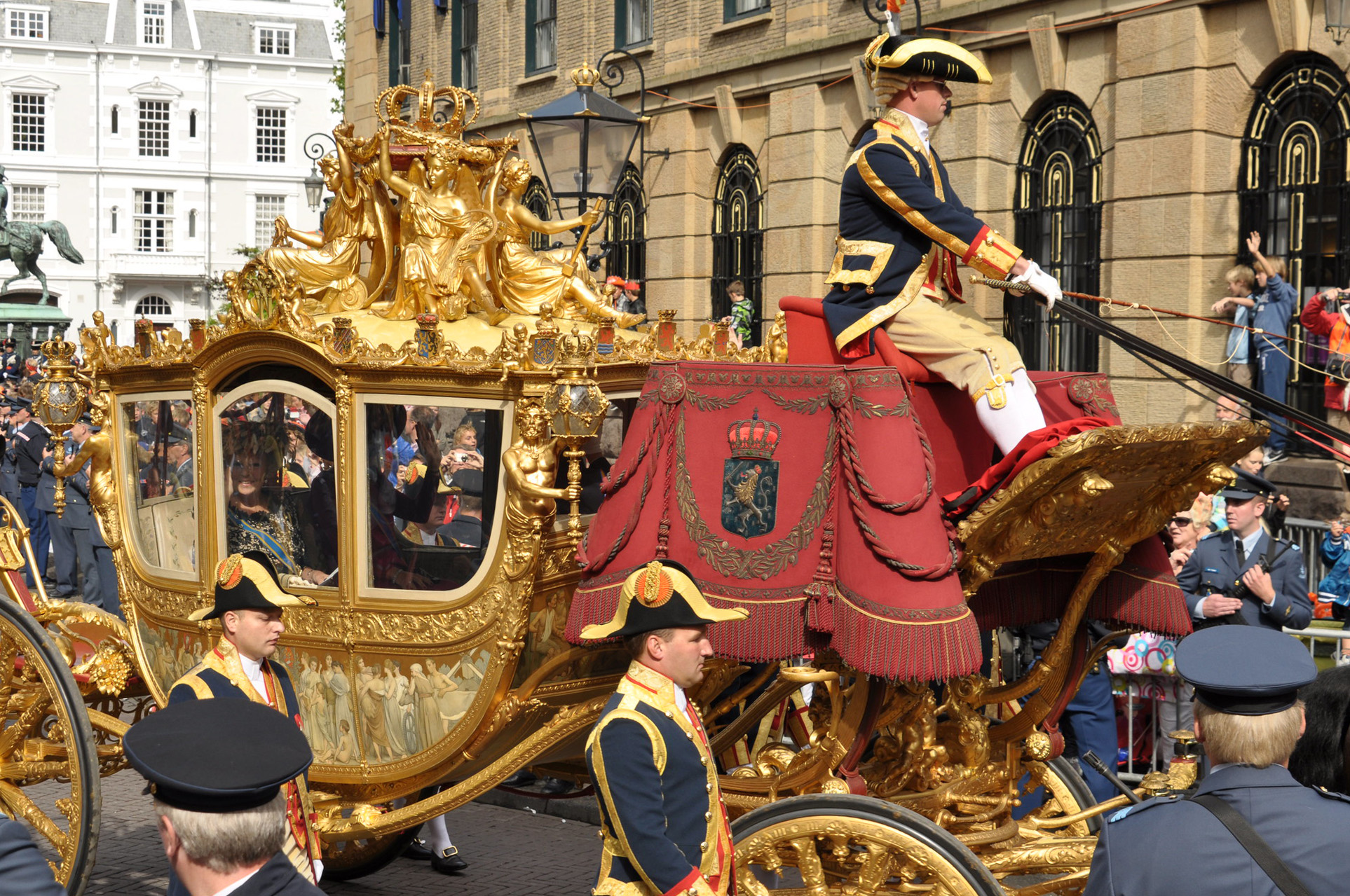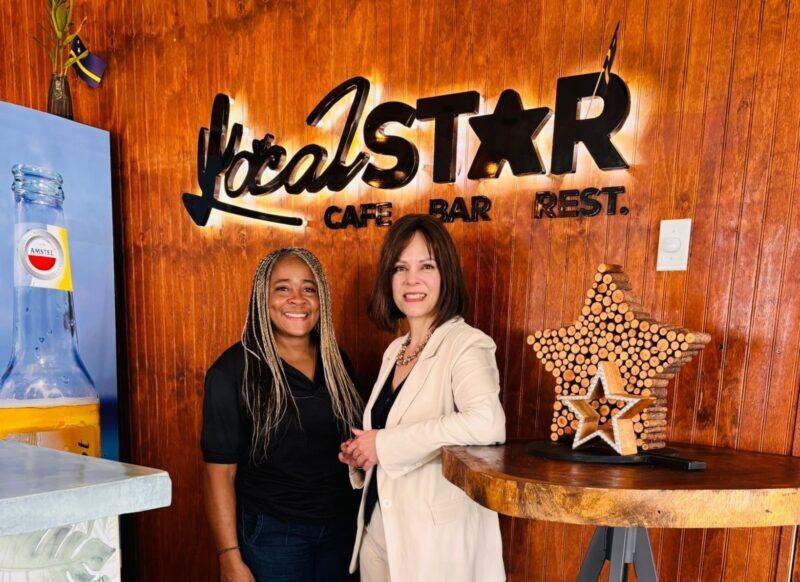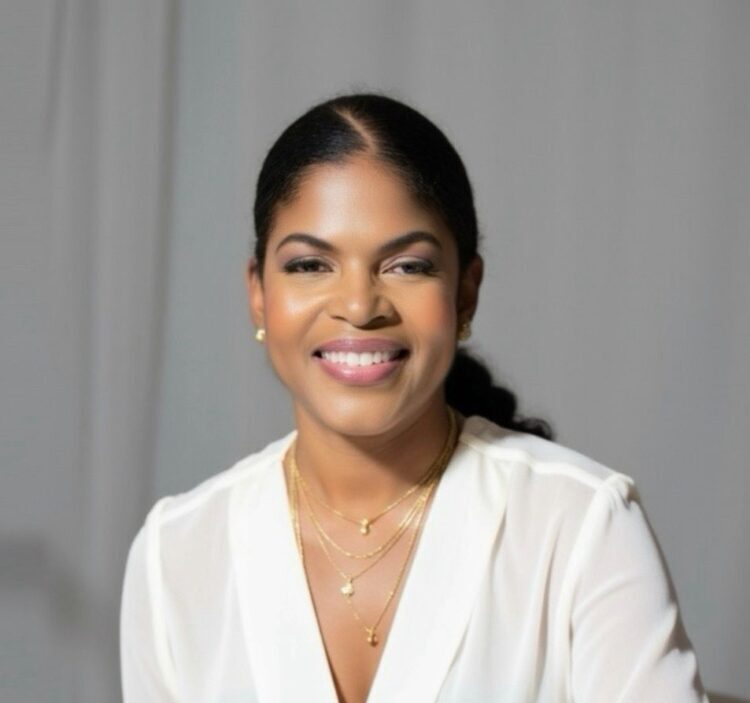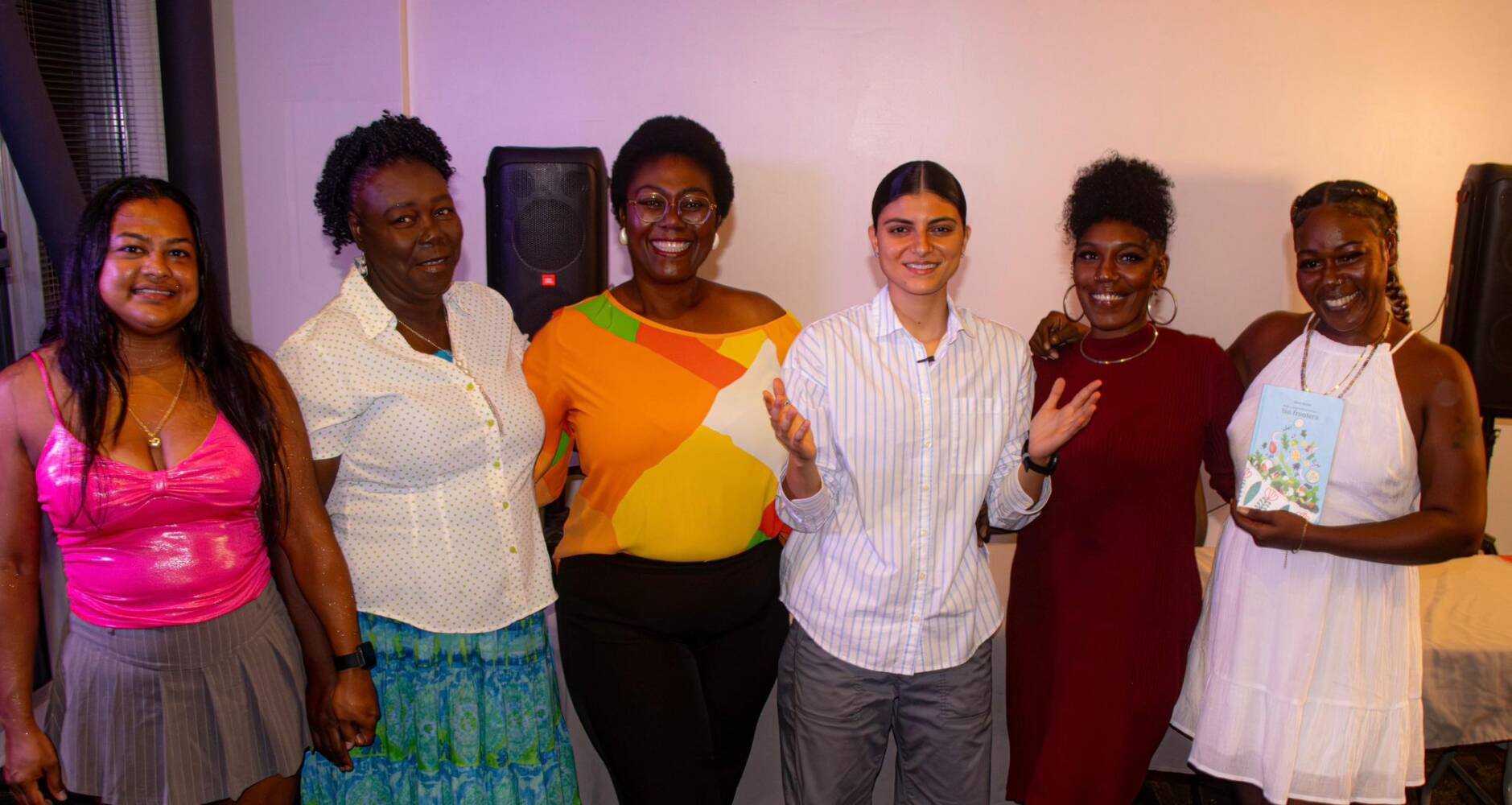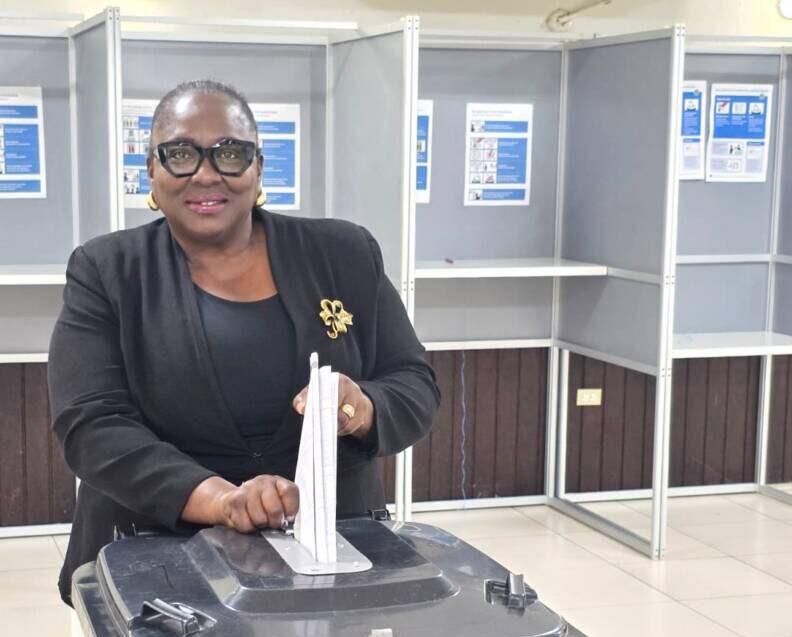THE HAGUE – King Willem-Alexander announced that he will not be using the Gouden Koets ‘for now’. The reactions to this video within the Caribbean community have been mixed. A notable sentiment was the ‘disappointment’ felt by some that the Gouden Koets might someday in the future be used again.
“We cannot rewrite history. We can however try to come to terms with it. That is also true for our colonial past. The Gouden Koets will only be able to be used again when the Netherlands is ready for that. And that is not the case now”, said the king.
That last sentence is the one which has caused a feeling of incomprehension amongst people, because they would rather have heard the king say that he would never use the Gouden Koets again. A few individuals ( a dance teacher, an artist, a former minister, and a student) shared their opinions on the video with Caribbean Network.
‘This is a special day’
“I already thought it was noteworthy when the coach was placed in a museum some three years ago. This is a special day, I still have to let it sink in”, says professional dance teacher Layzmina Emerencia (28). “I did not expect them to announce anything this quickly.”
There has been rising criticism on the use of the Gouden Koets during the past few years. One of the panels, on the side of the coach, features black individuals kneeling in front of white individuals to offer them goods. In exchange for the goods – and as a symbol of civilized society – they receive a bible.
In her work and in her private life Emerencia focusses on Aruba’s colonial past and the position of black individuals on the island. She’s also completing a Master of Education in Arts at the Amsterdam University of the Arts. She believes that the coach should be in a museum.
“The Gouden Koets has – with or without panels – a fraught, racist history. But the fact that the king has kept the door open for the coach to be driven around on the streets again, I find that to be a difficult pill to swallow.”
‘Ready for racism?’
The colonial past has been the reason why Zion Piggott (in his twenties) from Curaçao decided to become a history teacher in the future. He is a teacher’s assistant and gives guided tours at the National Archives in The Hague. When he first heard about the video, he was ‘happy’. After he watched the video for himself, he became ‘disappointed and confused’.
“I don’t find it acceptable that the king doesn’t take a stance on how inappropriate these panels are. It has an impact on me when he says that the Gouden Koets will be used again when the Netherlands is ready for that. Ready for what? Ready for racism? Now would have been a proper time for out head of state to apologize for the fact that he had been driven around in it. It belongs in a museum, forever.”
First protest against the Gouden Koets by Dutch Caribbean individuals
Curaçaoan Ruben La Cruz wrote history in 1990 when he, together with several other Dutch Caribbean individuals, were the first to organize a protest against the Gouden Koets. “The royal household is parading with suffering. This has to change”, says La Cruz (67).
“Most Caribbean individuals weren’t that aware about how humiliating those panels are. As an artist you want to open the eyes of people, so we triggered them while they were all dancing during carnival. We had the message ‘Gouden Eeuw, Negers Eeuw’ on our Gouden Koets. And ‘Negers te koop’ on the ministerial suitcase”, La Cruz reminisces. “A lot of people reacted positively if memory serves.”
‘The Antillean government saw it as an insult to the royal household’
“After that we were not only boycotted by the organization behind carnival but also by our own Antillenhuis. The Antillean government in The Hague really saw it as an insult to the royal household.”
The artist and activist is disappointed. “The king should’ve taken a firm stance: no more of this! In my opinion he stated that he would be riding around again in the Gouden Koets when the Netherlands is ready for it again. What does he mean by that?”
“The white Dutch individuals are in the majority. What if they find it acceptable to use it again? The king has to also ask the children of the Kingdom what we think about it.”
The Gouden Koets has been exhibited at the Amsterdam Museum for the past three years. Starting on Saturday the Gouden Koets can (temporarily) be viewed for free. “We can see it in the Netherlands, but people on the six islands can’t see it. It would be nice if the Gouden Koets could be exhibited on all the islands” says La Cruz.
‘The king’s message is very nuanced’
“A waste of money and time. We can view it digitally from Curaçao”, says Omayra Leeflang (67), former MP and minister for the Netherlands Antilles. “I found the video to be very nuanced!”
“When it comes to these topics the king should not take a stance, simply because you’re more powerful. You want the consensus to be that the colonial past was wrong, cruel, and inhumane.”
“In the video the king also mentions something important: talk to one another. He also says that the voices of individuals with ancestors who were enslaved need to be heard. That can only happen if we have a dialogue with each other.”
‘But how do we move forward? That is the question’
According to former minister Omayra Leeflang it is important that we ask: how do we move forward? “The islands chose to continue their relationships with the Netherlands. We made a conscious choice when we signed the Constitution of the Kingdom of the Netherlands. So we have to find a way to tackle this difficult topic together.”
Leeflang believes that the Caribbean community should grab this opportunity to talk about the consequences of the slave trade. “How do we handle this. There’s still slavery on Curaçao due to the unknown levels of poverty. Because a lot of teenage girls and women are in a cruel and inhumane manner – through sex for example – dependent on men who do have money.”
‘As king you can’t remain neutral in this discussion’
Dance teacher Emerencia gives the king the benefit of the doubt when it comes to his video. “The discussion surrounding racism is very heated in the Netherlands. Picking a side in this discussion could play out badly for him with certain parts of the Dutch population. But the royal household also had a role to play in the slave trade so I believe that as king you can’t remain neutral in this discussion.”
The popularity of the king might also play a role according to Emerencia. His approval ratings have never been this low.
“What we have to remember is that the king himself does not carry any political responsibility. The Dutch prime minister however does. But we don’t know what was discussed behind closed doors. Maybe the king wanted to take a stance, but he wasn’t allowed to.”




